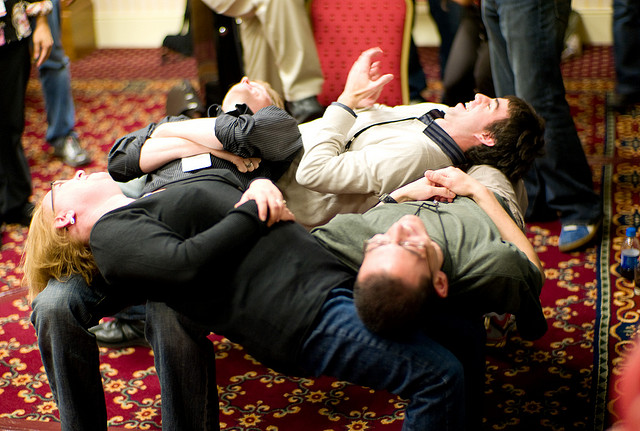
Being socially active can help fight depression, a new study reveals.
A team of researchers from the University of Queensland, Australia has collected solid evidence to highlight the importance of building a strong social relationship in combating depression.
In most cases, social withdrawal appears just before the onset of clinical depression. However, there exists very little evidence to show whether improving social interaction can help people affected with this condition.
To analyse the link, Dr Tegan Cruwys and colleagues conducted two studies involving a total of 144 people, who were either at the risk of depression or were already suffering from it.
In the first study, 52 people at higher risk of depression started going to a community recreation group. In the second study, 92 people with depression were sent to a clinical psychotherapy group.
Both groups benefitted from their social interaction. The social identification or "the sense of being part of a group" relieved depressive symptoms in people already suffering from it, the authors said.
"Findings have implications for health practitioners in clinical and community settings, suggesting that facilitating social participation is effective and cost-effective in treating depression," the authors, while concluding their study, wrote.
The study reported in the Journal of Affective Disorders comes at a time when 350 million people around the world struggle with depression, which is an outcome of chemical changes in the brain, caused by stress or hormonal changes.
A major depressive episode involves severe and persistent depression along with loss of interest in everyday activities followed by problems with sleeping, eating, energy, concentration and self-image. It is crucial to treat this condition early as the condition can lead to self-destructive behaviour and even suicide.
"By joining a group, people are provided with exactly what they lack when they are depressed – a sense of belonging, a sense of meaning and purpose, and a source of social support," researcher Dr Tegan Cruwys, from UQ's School of Psychology, said in a news release.
"The results place accessible and cost-effective treatment in the hands of everyone without the stigma of seeking psychological treatment or suffering the side-effects of anti-depressants."
Here are some other tips that help fight depression
- Yoga
- Exercise
- Meditation
- Dance classes
- Breastfeeding
- Acupuncture
- Healthy diet, mainly rich in folic acid, magnesium and vitamin C
- Mediterranean diet
- Recommended levels of sleep
- Herb ginkgo biloba
- Herb called St. John's wort

















